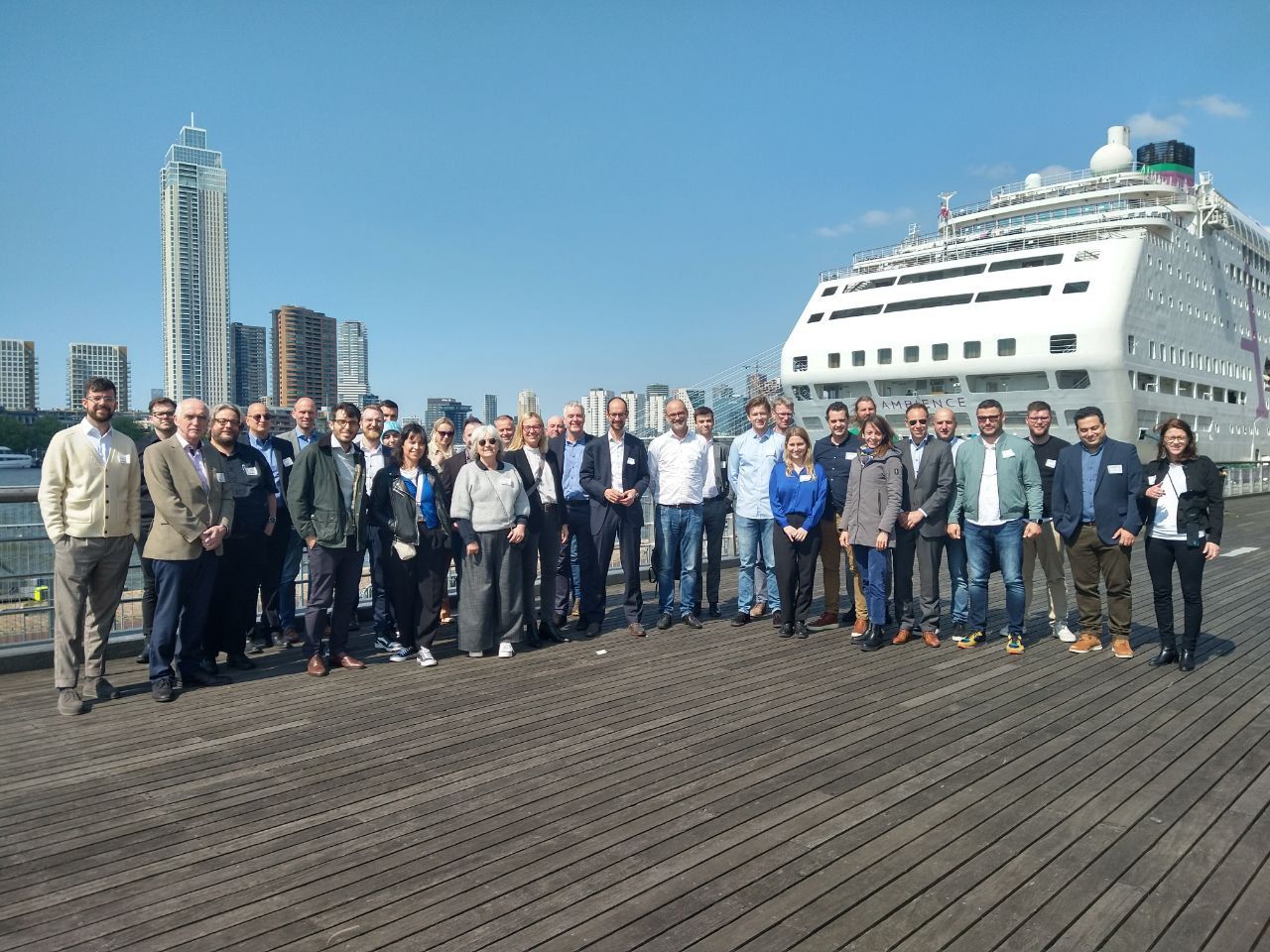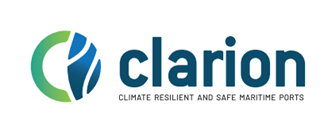CLARION Project Takes the Lead in Strengthening European Ports' Resilience
Together with the ports of Rotterdam and Hamburg, Port of Antwerp-Bruges is participating in the CLARION Project, funded by the Horizon Europe programme and coordinated by TU Delft, Faculty of Civil Engineering and Geosciences, the Geotechnical Engineering Section and a multidisciplinary team of 21 partners from 10 European countries. Aim of the project is to enhance the resilience and sustainability of European ports in the face of climate-related challenges. With an EU contribution of around 7 million euros, the project has a duration of 48 months, concluding in April 2028.
In line with the European Commission's EU Strategy on Adaptation to Climate Change and the European Green Deal, CLARION sets ambitious objectives to increase the operational availability of port infrastructures during extreme events, to support modal shifts towards low-emission transport systems and reduce accidents caused by climate-related disruptions, to minimize environmental impact and ensure transferability of results.
Featuring the top-3 ports in Europe in terms of container throughput, namely Rotterdam, Antwerp-Bruges and Hamburg in the North Sea and the largest European port in the Black Sea, Constantza, during CLARION 10 pilots will be conducted to test and deploy advanced technologies and strategies aimed at enhancing port resilience and sustainability. These demonstrations will focus on smart quay walls, monitoring system for the corrosion of port infrastructure, dredged sediment reuse, flood impact control, extreme weather forecasting and more, pushing the boundaries of current practices to future-proof port infrastructure.
Jacques Vandermeiren, CEO Port of Antwerp-Bruges: "At Port of Antwerp-Bruges, we are committed to ensuring the future-proof and climate resilient nature of our infrastructure. As we are facing similar challenges as the ports of Rotterdam and Hamburg, we are delighted to collaborate with them through the Clarion European subsidy program on 'Climate Resilient and Safe Maritime Ports', taking our partnership to the next level. Additionally, we are thrilled to work alongside our local partners, Brabo and the Antwerp Maritime Academy, in developing two demo cases. We eagerly anticipate the exchange of insights and lessons learned with our fellow ports and partners.”
“The development strategy of the port of Constanta will take climate change into account as a major factor. In order to face its effects in the future, MPAC (National Company Maritime Ports Administration SA Constanta) commits to promote innovations and modern technologies, as a relevant instrument to increase port efficiency. In this sense, the CLARION project is first of all a tool for learning the latest trends in the field of innovation applications in sea and river ports, in order to be able to later promote and replicate them at the level of the entire port community, but also with potential effects at the level of the logistic chains influenced by the Port of Constanta. That is why the CLARION project, which analyzes the impact of climate changes and possible mitigation solutions, will contribute decisively to the identification of the best strategies and measures to ensure the stability and resilience of the port infrastructure. The use of innovative means (drones, sensors, AI, etc.) provided by CLARION through a pilot project implemented in the Port of Constanta, represents an important step in the port transformation and modernization”, declares Mihai Teodorescu, Port of Constanta CEO.
"One of the aims of forward-looking port planning is to ensure the best possible safe and reliable accessibility of the port. The ability to continuously adapt to changing environmental conditions, such as climate change or extreme weather conditions, is highly relevant in this context. The HPA is also meeting these challenges with new technologies such as artificial intelligence and digitalisation. We are therefore delighted to be part of the CLARION project to work on specific use cases together with our partners", says Jens Meier, CEO of the Hamburg Port Authority (HPA).
“Physical risks from climate change are increasingly affecting our port infrastructure and assets, as well as those of our customers. The port of Rotterdam is largely situated outside the dykes, which means that dykes and barriers do not fully protect the port. This makes it more vulnerable to rising sea levels. Although the different sites in the port are built relatively high above sea level and are partly protected by storm surge barriers, we are continuously developing measures to ensure the port remains resilient to climate change in the future. As these adaptation challenges are equally relevant to our neighbouring ports Antwerp and Hamburg, as well as Danube-connected Constanta, we are glad to be a partner of the CLARION project. We have a long-standing relation with TU Delft in joint research and look forward to fruitful cooperation leading to results that ports can implement from the seaside to the hinterland” says Boudewijn Siemons, CEO of the Port of Rotterdam.
About CLARION
CLARION (Climate Resilient Port Infrastructure) is a collaborative project funded by the Horizon Europe Programme, aimed at enhancing the resilience, sustainability, and security of European ports in the face of climate change. Bringing together a multidisciplinary team of 21 partners from 10 European countries, CLARION will develop and implement innovative solutions to mitigate the impacts of climate change on port infrastructure.
CLARION aligns with the European Commission's EU Strategy on Adaptation to Climate Change and the European Green Deal, emphasizing the importance of climate-resilient infrastructure in achieving climate neutrality by 2050. By embracing these initiatives, CLARION aims to contribute to Europe's collective efforts to combat climate change and build a sustainable future.
The total EU budget for the project amounts to approximately 7 million euros, spanning a 48-month duration and concluding in April 2028.


